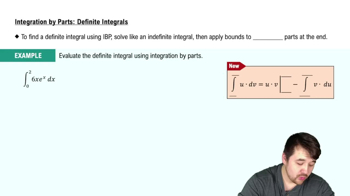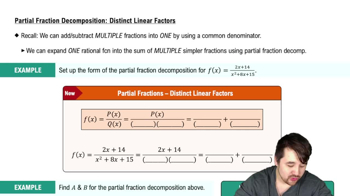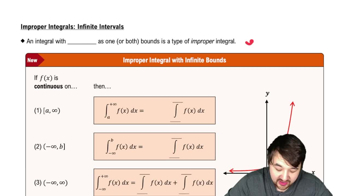7–84. Evaluate the following integrals.
25. ∫ [1 / (x√(1 - x²))] dx
 Verified step by step guidance
Verified step by step guidance Verified video answer for a similar problem:
Verified video answer for a similar problem:



 5:04m
5:04mMaster Introduction to Indefinite Integrals with a bite sized video explanation from Patrick
Start learning